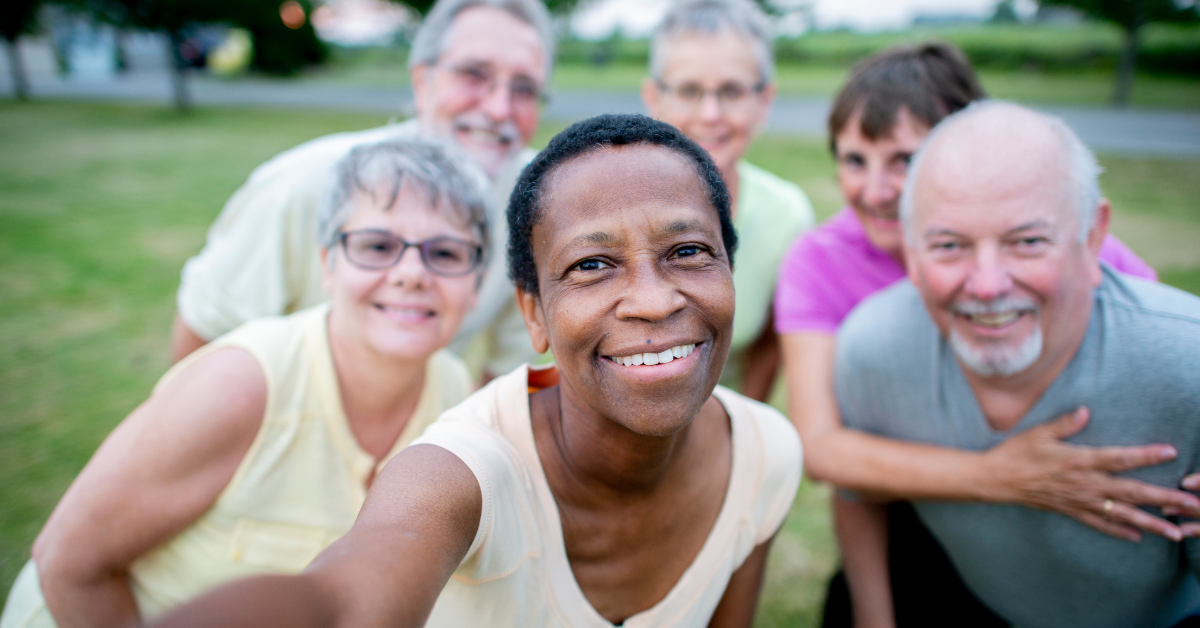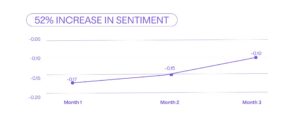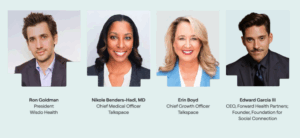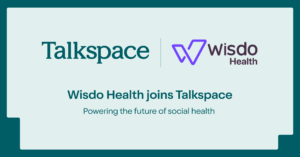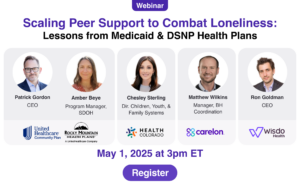Loneliness is on the rise in every single age bracket, and has risen by 13% since 2018.
It is incontrovertible that this upward tick in reported feelings of loneliness and isolation, which began pre-pandemic, has been further exasperated by global lockdowns.
Research shows that loneliness has a devastating impact on physical and mental health. This leads to higher healthcare utilization and medical costs, while severely reducing engagement rates with clinical services, including therapy.
Given that the harmful effects of loneliness multiply when combined with chronic illness, it is clear that elderly populations aged 65 and over are most vulnerable, and require higher medical spend per member.”
Fortunately, research data has also pointed to a solution for at-risk seniors: community and social connection. A study cited by NASEM involving 300,000 participants over the course of 7.5 years shows that stronger social connections reduces mortality rate by 50%.
If there is any silver-lining to COVID, it is the increased recognition of the effects of Loneliness by government and healthcare organizations. With that recognition comes opportunity for improved diagnosis, treatments, and solutions, particularly those that unlock the power of community and connection to improve quality of life across all measures.
Many Clinical Interventions for Seniors that Screen Positive for Loneliness Don’t Work
To date, many digital health interventions for seniors that aimed to improve their health and increase motivation for self-care have not been successful enough. Why?
One reason may be that seniors are wary of teletherapy, especially seniors with depression, who may need it most. This is in large part due to factors such as “the cost of treatment, and fear of [potentially-prescribed] medication replicating previous findings.”
We do know that the hesitance to rely on teletherapy isn’t due to low tech literacy. According to the Pew Research Center, tech literacy amongst seniors has been going up in the past 2 decades, so the right digital health solution can certainly work. This is especially true post-pandemic, as per the findings of the AARP.
No, the hesitance comes from the reality that teletherapy, and other similar digital health solutions, lack a key ingredient to maintaining quality of life: community.
The Benefits of a Community-Centered Health Care Solution
Considering the benefits of a community-first approach, it’s hardly any wonder that more health insurance providers are seeking to integrate this into their services.
According to a study from the WPA (World Psychiatry Association), peer support encourages greater engagement in self-care and wellness, and is proven to reduce hospitalizations and cases of depression.
As pointed out above, the combination of mental and physical illnesses result in a major portion of avoidable healthcare-related costs. This is supported by research published in 2017 from the Gillings School of Global Public Health, which also shows a strong link between peer support and lower medical costs even in cases of chronic illness such as diabetes.
Wisdo’s Dynamic, Community-Centered Method Works
Wisdo Health has developed a social health product specifically geared towards Medicare Advantage members and is in the process of launching several nationwide partnerships with health insurance providers. Early results show a medical cost reduction of more than $1,000 per every Medicare Advantage member enrolled in Wisdo for more than 90 days.
In addition to significant cost savings, data shows that 60% experience a reduction in loneliness and 51% report a reduction in the number of mentally and physically unhealthy days they experience each month.
Moreover, Wisdo’s community-first approach provides the following critical benefits to health insurance providers:
Reach more people. Wisdo found that 58% of Medicare Advantage members who were reached via IVR (Interactive Voice Response), email, or text, wanted to join a social wellness and health platform to make new friends, reduce loneliness and move towards physical and mental health.
Effectively engage members. Wisdo found that almost 40% of MA members who join a digital health platform, with the goal of building healthier support networks, engage in weekly meaningful conversations with others to find emotional support, and increase a sense of worth and belonging. 82% remain engaged with Wisdo after 12 months.
Track more data-points. We can learn more about the obstacles that people face in the duration of a year and beyond, and how that affects their medical spend. Wisdo’s onboarding and monthly survey model effectively targets over 200 red flags in mental or physical health that would have otherwise been left undiagnosed and unmet.
These red flags also include: Non-Emergency Medical Transportation needs (NEMT), skipping medical checkups, food security and unhealthy relationship with food, financial situation, mental health conditions, addictions, cancer, diabetes type 1 and 2, heart disease and more.
We call on leaders in healthcare, and Medicare Advantage providers, especially, to consider the data on community-based care, and join us in changing the tide of loneliness and isolation for our elders.
What can be more important?
Boaz Gaon, Founder & CEO
Wisdo Health
Wisdo is an award-winning social health and clinical referral platform that addresses the adverse consequences of social isolation and loneliness on the mental and physical health of 124 million Americans. Research shows that Wisdo results in $1,000+ in annual medical cost savings, a 37% reduction in depression, a 34% increase in the number of healthy days experienced by our members, and an 80% retention rate on month 12. More than 1 million adults have joined the Wisdo community, where they realized measurable improvements in their health through community-driven social support, professionally moderated group sessions, and when appropriate clinical referrals based on predictive analytics.
Learn more at www.wisdo.com

